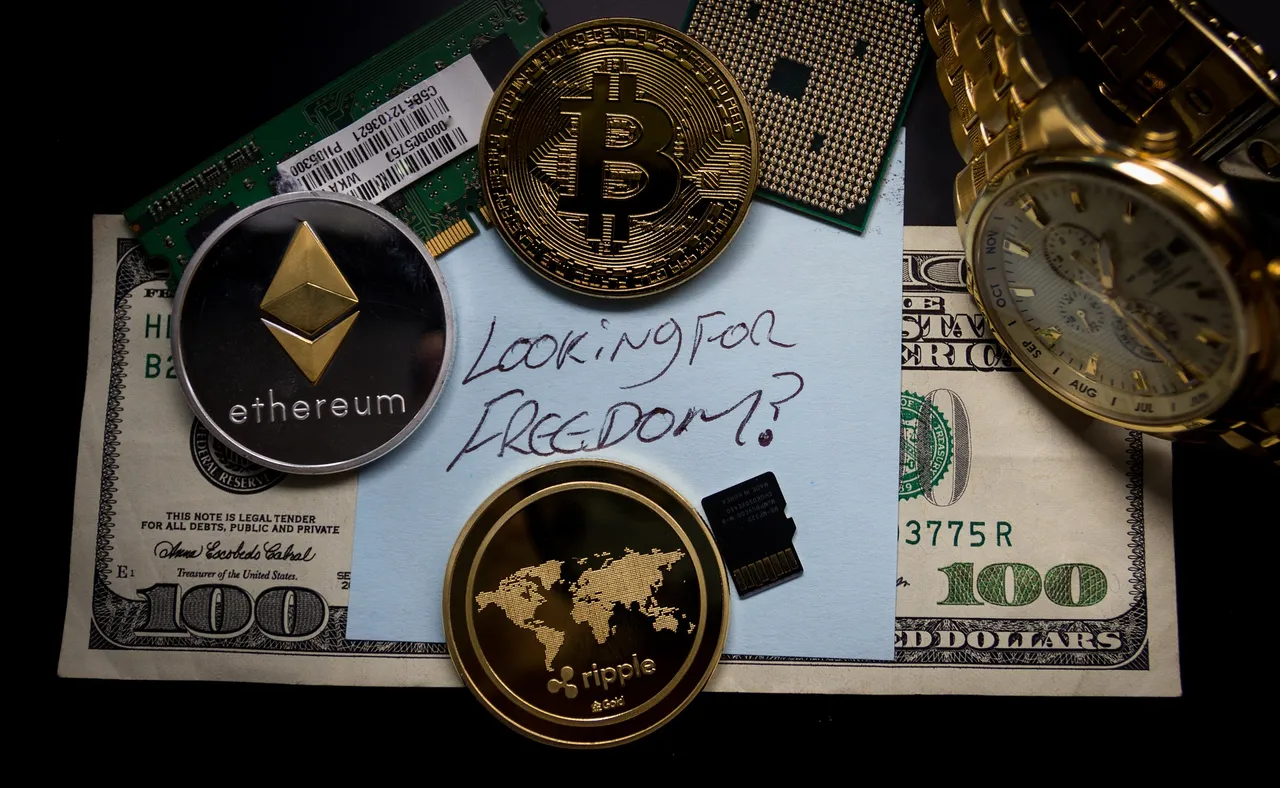With the huge price surge Bitcoin and other altcoins have experienced over the last few years, suddenly everyone is jumping to get a piece of the action and we have so-called crypto gurus popping up all over the place claiming to be able to predict the future (Bitcoin will rise to $100,000 in 2018 etc., etc.) by analyzing market patterns. On the other hand; the naysayers are calling for a “bubble burst” yet crypto currencies have rebounded from every price correction as crypto chasers hoping to make a quick buck beat a hasty exit disproving this negative reaction which was purely based on speculation such as the banning of cryptos, which will never happen anyway. “When speculation runs rampant everyone panics and sells, causing price drops.” Only sell an asset where there is a rational reason, not an emotional reason and, obviously, “Don’t put all your eggs in one basket.”

The truth is: most people just got lucky. Crypto currency is a unique product for which the only way someone can predict future trends is to know how all the major players will react and behave at each moment in time, i.e. the Governments, regulators, billions of people and other crypto currencies which may be introduced.
There is a ton of money to be made in cryptos but most people don’t have a clue what they are doing.
Crypto currencies are a speculation (albeit a very profitable one) rather than an investment which requires a reasonable knowledge of an assets real market value.
Bitcoin is now regarded as an asset rather than currency due to a failure to deliver on two specific points:
Failure due to inherent inefficiencies to become a mainstream alternative to money as we know it as was originally intended and
As one analyst put it “Bitcoin presented a choice that has never existed before. Its mysterious creator Satoshi Nakamoto described it as “a distributed system with no single point of failure” where “users hold the crypto-keys to their own money and transact directly with one another, with the help of the P2P network to check for double-spending.” The promise was to build security through cryptographic proof, replacing third-party trust and creating networks resilient to counter-party risk.” The rise of these “exchanges” has resulted in the exact single point of failure Bitcoin set out to provide a solution for.
Bitcoins current price does not matter so stop checking the price every 5 minutes.

As with any other currency and/or asset Bitcoin's and Altcoin's value will eventually stabilize and be driven by pure demand and supply and all the indirect variables influencing these.
For those who claim that Crypto currencies have no real value. Yes that is true, but neither does the U.S$ since its peg to gold was removed. In real terms the dollar is only worth the paper it is printed on. Rather what gives the US$ value is confidence. Confidence in what it represents, confidence in the US government and confidence in the economic environment and stability. The recent, almost overnight appreciation of the South African rand the moment people knew with certainty that Jacob Zuma was on his way out after Cyril Ramaphosa was voted in as the new leader of the ANC is a classic example of the effect business confidence has on the value of a currency.
A great part of Crypto currency’s success and future potential price rises is based on the blockchain's potential and people's growing dis orientation with their governments especially since the great recession with most central banks arbitrarily creating extra currency.
In the case of normal currency, databases exist and are owned and controlled by the banks. A country’s central bank controls the money supply via monetary tools such as the interest rate. As basic economics assumes: an increase in the money supply = an increase in the rate of inflation.

A blockchain is exactly the same; an online database of every transaction with two major differences:
Rather than the banks or governments centralized ledger the blockchain's ledger is owned and shared by all users of the blockchain thus no one person can alter it.
The crypto market capitalization, or money supply is limited and thus valuable, hence it’s comparison to gold. In fact most crypto’s market capitalization pales in comparison to the money supply of most currencies.
The crypto currencies main advantage therefore is; it is not the US$ and it is not controlled by any government and therefore I am less likely to have my life savings wiped out in an instant. I can also keep Cryptos stashed away from the prying eyes of my government who will want 30% or so as taxation.
Crypto currencies are still in a very early stage and hence the speculation and wild price volatility. Once the market settles down and equilibrium is reached as the market determines the price, Cryptos will stabilize and become stable enough for retailers to accept.
In conclusion, the market capitalization is more important than the price. The demand is based on, number of users, velocity and volatility. If cryptos work, the current price is irrelevant. The major draw is the underlying blockchain technology which has the potential to greatly reduce costs and revolutionize life as we know it. Money is just the beginning.